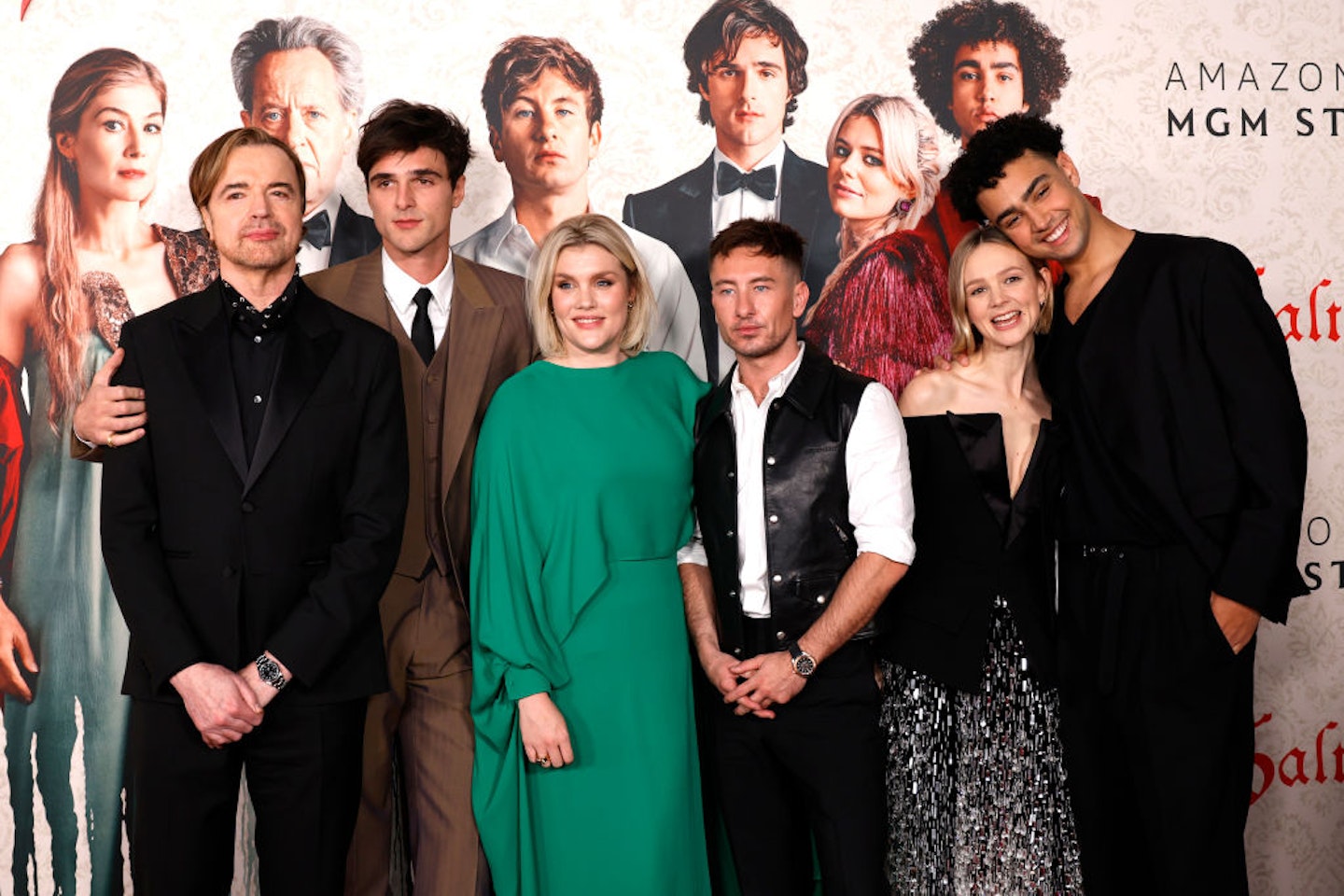There aren't many directors who manage to stir up rage, controversy and divide opinion quite like Emerald Fennell. Before she could even say the word 'Heights', the Promising Young Woman director's adaptation of Emily Bronte's 1847 novel has had the internet up in arms.
First, she was criticised for casting Margot Robbie, 35, as Catherine Earnshaw, who (spoiler alert) dies by the time she is 18. Then she was called out for casting Jacob Elordi, a white actor, in the racially ambiguous role of Heathcliff. And then 'first look' pictures of Wuthering Heights found their way onto social media and the whole production was written off for its numerous historically inaccuracies.
Now, despite the film not coming out until 13 February 2026, scathing reviews of the test screenings have put Fennell's adaptation back in the headlines. One viewer at the first test screening in Dallas labelled the film 'aggressively provocative' and said it had parallels with the 'stylised depravity' of her last project, Saltburn.

Another viewer called it 'sexually explicit' and 'tonally abrasive'. One attendee described scenes of 'purposefully discomforting masturbation', a sexual bondage encounter involving horse reins and shots of 'suggestive textures', such as egg yolks, bread dough and slug trails. Apparently, the film even opens with a man being hanged who proceeds to 'ejaculate mid-execution'.
For anyone who has seen Fennell's films – where vengeful rape victims are murdered and conniving university students drink semen from the bath drains and have sex with empty graves – none of this will be remotely surprising.
What is surprising, though, is that we are hearing about all of this six months before the film hits cinemas. Whether you work in the entertainment industry or not, it is fairly unprecedented for reviews of screen testings not to be under strict embargoes, especially for a film with such a demonstrable marketing budget and high profile cast and crew.
There is a reason why reviews tend to drop the week before or day of a film being released. They are, to all intents and purposes, a way of helping people decide whether to tune in. Nowadays they are also used to create 'buzz' and help the film cut through in online discourse.
Given Fennell's penchant for raucous debate – she certainly seems to be an advocate of 'all publicity is good publicity' – it's hard to imagine that these scabrous reviews are not part of the film's wider marketing strategy.
When have we ever heard what a single viewer in Dallas thinks of a test screening before? Or read that a film blogger thinks her interpretation adds 'something bold and unexpected' to Bronte's story? It is far from usual protocol. And Fennell knows what she's doing.
I'll be the first to admit I only watched Saltburn to see what all the fuss was about (and to validate my preconceived opinion that I would hate it). Perhaps this talk of ejaculation-ridden executions and 'suggestive' egg yolks is pathing the way for the same thing to happen again.
In a post-Don't Worry Darling world – where the alleged BTS scandals between director Olivia Wilde and her co-stars (most notably her rumoured affair with Harry Styles) turned the film into international talking point – all business savvy studios know a good fell won't always sell itself anymore.
We saw it happen last summer during the press run of It Ends With Us. The feud between co-stars Justin Baldoni and Blake Lively far outshone the film itself and snowballed into a toxic legal battle that is still ongoing. Far more people now know about It Ends With Us than they ever would have before – even if, in this instance, it was not intentional.
In a world where audiences are constantly overwhelmed by choice and reluctant to spend in cinemas without knowing what they're paying for, the louder the chatter about a film is online, the more likely they are to watch it.
If that's what Fennell is playing into, then hats (or bonnets) off to her. Wuthering Heights might still be six months away, but part of me wants to find out what all the fuss is about already.
Nikki Peach is a writer at Grazia UK, working across entertainment, TV and news. She has also written for the i, i-D and the New Statesman Media Group and covers all things pop culture for Grazia (treating high and lowbrow with equal respect).
